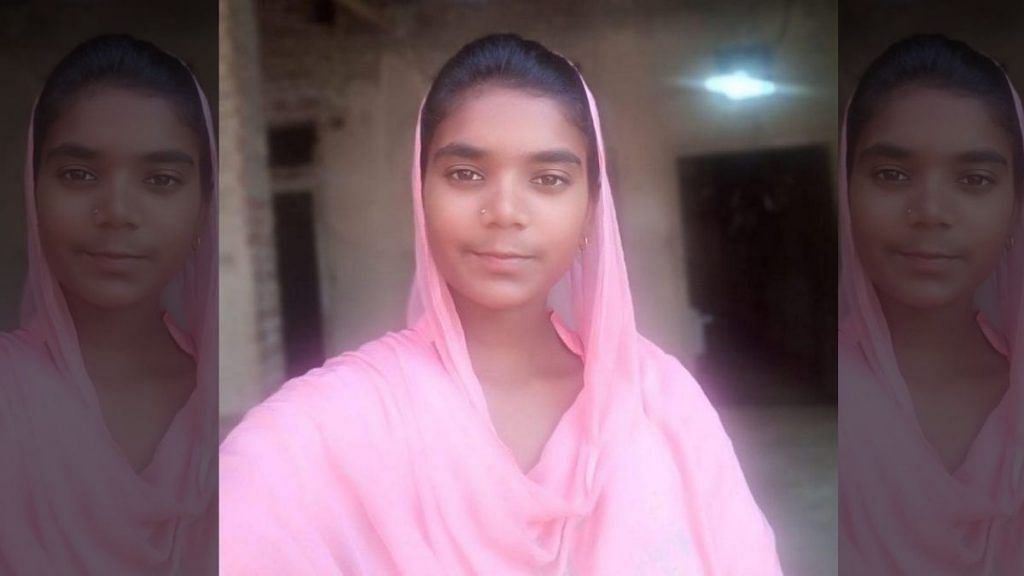Ever wonder what happens to the Dalit toppers from the remotest villages of India? Do they pursue higher education, or do they become manual scavengers, or do they end up working as labourers in the fields of ‘upper caste’ landowners? As India celebrates its 74th Independence Day and our leaders use the occasion to make tall promises, these are questions worth asking.
If these questions bother you, then you must track the journey of 17-year-old Jaspreet Kaur from Punjab’s Mansa district. A Dalit with zero resources at her disposal, Jaspreet has topped this year’s Punjab School Education Board’s Class XII exams, securing 99.5 per cent in humanities.
After 20 days of hitting the headlines, the collective efforts of an organisation, a professor, a lawyer and a few others, have helped her see new opportunities. Yes, it takes a bunch of people to tell a Dalit girl about her own potential and what she could do with it in a world dominated by the ‘upper’ castes/class. But with almost no social or cultural capital and financial stability, her real struggle starts now. Punjab’s Dalit topper’s biggest aspiration was to become a primary school teacher.
Also read: India’s oppressed groups had high hopes from Internet. But upper castes got in there too
Internet is her hope
When 29-year-old Ravi Verma, a practicing lawyer in Delhi High court, saw a news clip doing rounds on social media, he was moved. A Dalit topper only wants to become a primary teacher? Why not an IAS? Why not a judge or a journalist? These questions left Verma uncomfortable.
After trying to trace her for five days, Verma was able to connect with the reporter who had published Jaspreet’s story. Verma told him that he wanted to help Jaspreet enroll in Delhi University.
After Jaspreet’s success story flashed in the media, New York-based literary organisation Raag came forward with a scholarship of Rs1 lakh. A central government employee, after seeing the news, helped Jaspreet apply for the post-matric scholarship scheme meant for scheduled castes. Later, Union minister Harsimrat Kaur Badal assured Jaspreet of help while congratulating her on a video call, which led to a Delhi University professor coming forward and offering counselling to the Dalit teenager.
“All this is unimaginable for me. I never knew the power of the internet,” says Jaspreet.
People from the neighbourhood also came forward to help her in their own little ways, offering monetary support in the form of small cash sums of Rs 1,100 and Rs 2,100. Jaspreet now has Rs 1.5 lakh in her account.
Also read: The mother tongue fanatics are keeping India a poor, backward country
Anxieties, taunts and aspirations
Jaspreet had never heard of Miranda House in Delhi University. “I have never even been to Chandigarh,” the 17-year-old says jokingly.
Aware of her social standing and the rare feat she has achieved, an anxious Jaspreet says: “Some people in our village have started taunting us, saying that I must have got these marks by luck. This angers me a lot. They are doubting my capabilities. What if an upper caste girl/boy secured these marks? Would they have the same things to say about her/him?”
“If just a few people from my own society can shatter my confidence, I am not sure how rich people in Delhi will see my journey. I have seen in films, they indulge in ragging poor girls.”
But Jaspreet has the support of her Hindi Teacher, Gurdas Singh. Singh rubbishes the claims that she got these marks through sheer luck. “Not everyone can accept the fact that a poor Dalit girl has excelled in studies. I have taught her since Class I. She is the brightest among all,” says Singh.
Also read: My teacher once asked how could I be good in Sanskrit: Tribal woman scholar who’s now a V-C
Breaking the intellectual monopoly
Even if Jaspreet gets into Miranda House or Lady Shri Ram, she is likely to feel left out. Every time her college mates will mention cinema, Netflix, fashion, literature, and popular culture, Jaspreet will probably get rattled because the teenager from a small village in Punjab lacks the ‘cultural capital’ of the upper-class students. The English-speaking elite might look like aliens to her. That’s the burden of opportunity cost the likes of Jaspreet have to live with when they leave their small villages and venture into big cities in a bid to make a mark for themselves. Sadly, not many are able to make it through.
Till now, Jaspreet has experienced a certain kind of discrimination and made peace with it. While her father runs a barbershop, she and her mother work in the fields.
But now, things would be different. While on one hand, a world of opportunities wait for her in India’s capital, on the other, she will also be exposed to urban social discrimination. Because she has challenged the intellectual monopoly of the upper classes through her merit, she would be rejected at every step. Her success would be scrutinised. The first rejection has already come from her own village.
This is why Bahujans must form cultural and social groups to work as support systems for the Jaspreet Kaurs of the world. The likes of Jaspreet lack the cultural capital only because they did not have the means and not because of their inability. Now, in the times of a digital revolution, they can easily pick up the threads.
Jaspreet needs this support because she is the first champion of her ‘Kaur dynasty’. The first ‘rural elite’ of her family. The Republic of India has to see that she doesn’t end up just being a headline.
Viewas are personal.
